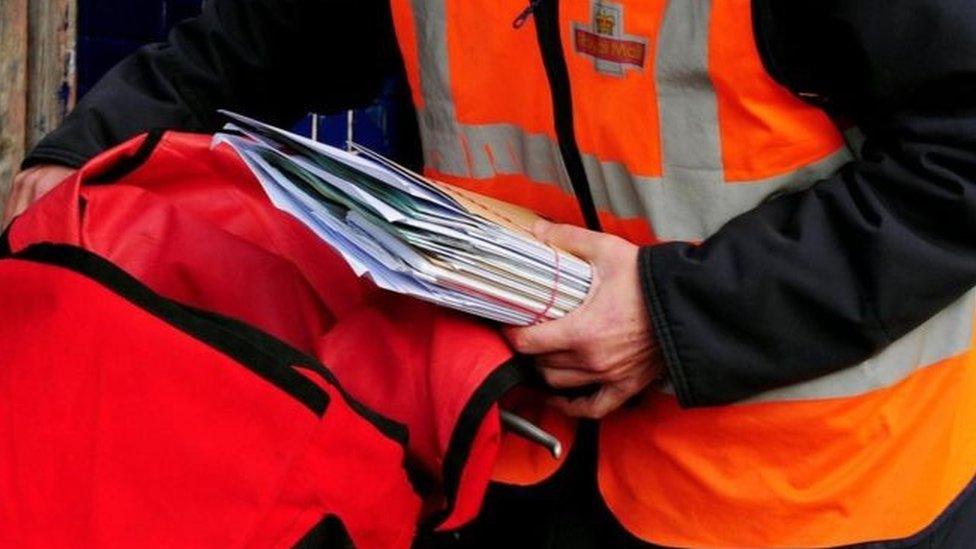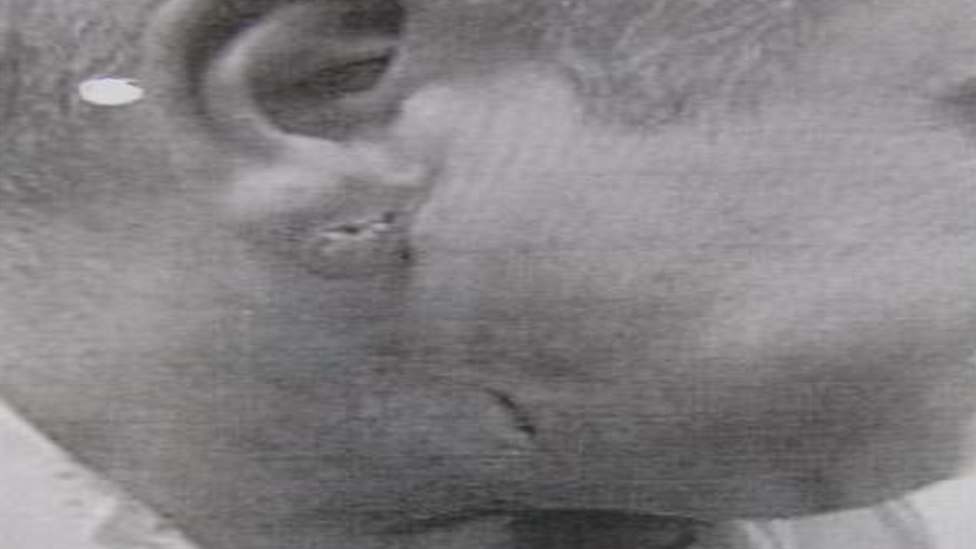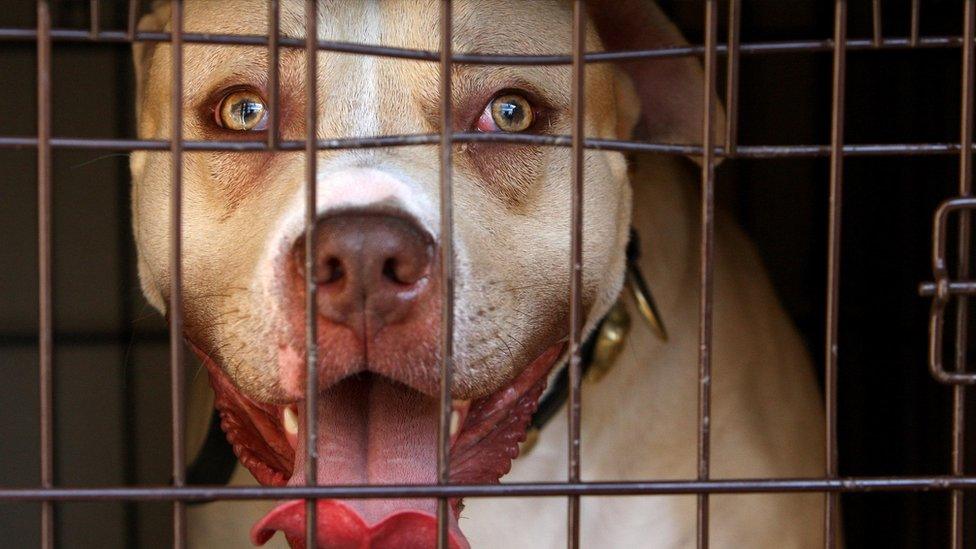Dog attacks on postal workers appalling, Cardiff conference told
- Published

There were 843 dog attacks on Welsh postmen and women in the last five years
Calls for the use of dog licences have been renewed with attacks on postal staff reaching "epidemic proportions".
Julie Morgan AM said postal staff were "most vulnerable" to such attacks with children also "badly affected".
Royal Mail reported 843 attacks on staff in Wales in the last five years.
Cardiff councillors, AMs and union representatives have called for more measures, including dog licences, to reduce dog attacks at an event called Caring4K9s on Tuesday.
Stuart Hughes, who was a postman in Gwynedd, almost lost an earlobe in 2010 after an Alsatian bit his ear, jaw and throat while he was working.
"I had to see a facial injuries specialist and they managed to stitch up my ear and throat with about 20 stitches," he said.
"I'm back on normal duties now, but there are still scars, some tendons were damaged and I get ongoing problems with my neck. Dog attacks are no joke."

Gwynedd postman Stuart Hughes almost lost his earlobe after an Alsatian attack in 2010
Cardiff councillor Dilwar Ali, whose six-year-old son was mauled by a Rhodesian Ridgeback dog in 2011 after it escaped from a neighbour's garden, said there was currently a "loophole" in tracking dog owners through microchip databases because owners who sell dogs on do not always update the database.
He added there were "a lot of grey areas" as dog owners "should automatically be banned from owning a dog for 10 years" after an offence under the Dangerous Dogs Act, but this was "sometimes not happening".
Ms Morgan has campaigned alongside Mr Ali for dog control notices that would allow early intervention by local authorities or police if they had concerns about a particular dog owner, such as enforcing owner and dog training or compulsory muzzles in public.
Ms Morgan said dog owners needed "much greater education and to be forward thinking about the responsibility of owning a dog".
The pair are supporting the Communication Workers Union's Biteback campaign which brought about strengthening the UK's Dangerous Dog Act, including mandatory micro-chipping of dogs to identify and control dangerous dogs and irresponsible owners.

Cardiff councillor Dilwar Ali has called for dog licences after his six-year-old son was attacked by a Rhodesian Ridgeback.
CWU health and safety officer Dave Joyce said though the Dangerous Dogs Act was extended to cover dogs on private property in 2014 "more rigorous enforcement of the law" was needed.
"It's a problem that still seems to keep going under the radar yet it has reached epidemic proportions. Our workers are the first in the frontline that will be meeting irresponsible owners and dangerous dogs.
"There are still cases where offences are committed but the police are not prosecuting. There have been 15 private prosecutions by CWU over the last few years."
Mr Joyce added the CWU was currently pursuing two private prosecutions for offences under the Dangerous Dogs Act that police in Wales had not prosecuted.
He has asked the Welsh Government to consider more investment for dog legislation officers trained to deal with dog cases and the introduction of dog licences similar to those in Northern Ireland.
A Welsh Government spokesman said: "Our consultation on a revised code of practice for the welfare of dogs reminds owners of their obligations relating to controlling their pets and the governing legislation. The consultation closed earlier this week and we will look at the responses in detail.
"We are also investigating the feasibility of establishing an animal offender register and reintroducing dog licensing. Both are complex proposals but worth investigating.
"Embedding a culture of responsible ownership cannot be achieved in isolation. We will continue to work across government and with a range of organisations to achieve lasting improvements but owners must take the lead responsibility by ensuring their dogs' needs are met."
- Published24 July 2017

- Published28 November 2017

- Published20 July 2017
